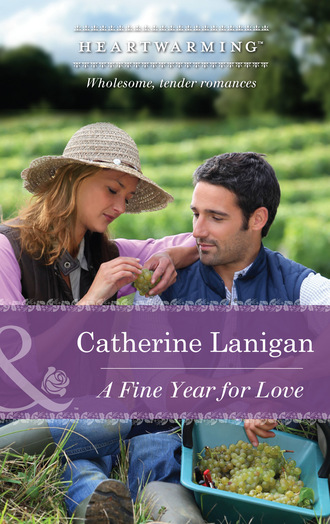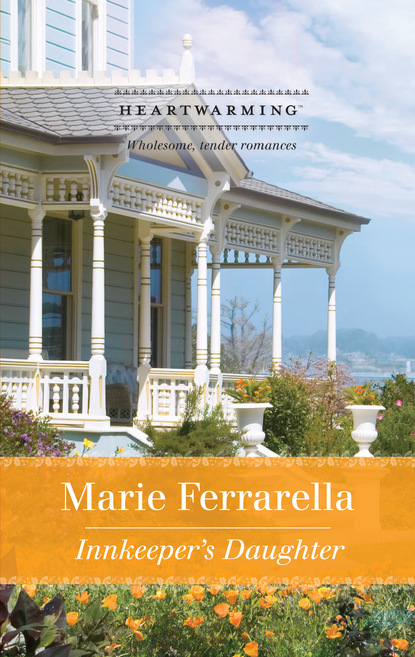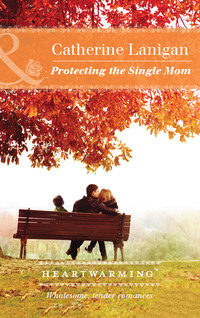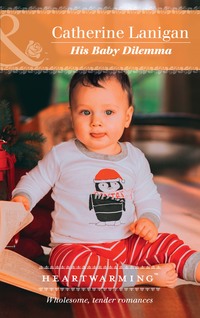
Полная версия
A Fine Year for Love

Her grandfather told her never to trust a Barzonni
Nothing gives Liz Crenshaw more delight than walking the hills of her family’s winery and tending her precious vines. And nothing frustrates her more than Gabe Barzonni, the handsome, successful and utterly aggravating son of Indian Lake’s most prominent farmers. All her instincts scream “avoid,” especially when she finds out he’s going into the wine business himself. But Liz can’t seem to shake him. One minute, he’s nosing around her property, the next he’s arranging to escort her to her best friend’s wedding. Well, too bad. Whatever he has designs on—her or her land—Gabe is out of luck. Now, to get him out of her mind...
The man was trespassing
He had his back to her as he held a wide-mouth glass tube of dirt...her dirt...up to the sun. Liz moved in closer and leveled her shotgun at him.
“Put it down and turn around.”
The man raised his arms and turned to face her.
Liz gasped. “Gabe Barzonni?”
Gabe chuckled. “Hi, Liz.”
She glared at him. “Spill. Why are you stealing my soil?”
“I wasn’t stealing. Exactly.” He started to smile, but catching Liz’s suspicious scowl, he obviously thought better of it. “I followed some tourists out to the vineyard. Your chef de cave told us we were free to walk around.”
“Sure you are. Among the Cabernet grapes. Not over here.”
“I didn’t know,” he said. “Liz, can you please put the shotgun away? It makes me nervous.”
“Good,” she said. “I want you to be nervous. Maybe you’ll start telling me the truth.”
Dear Reader,
I hope by the time you’ve picked up A Fine Year for Love you are as enthralled with the characters in Indian Lake as I am. I realize that as the author I am supposed to love my people, but with each new romance I am finding some very strong-willed, dedicated and loyal folks who are fascinating enough to keep me up at night telling me their story.
You may remember that I introduced Liz Crenshaw in Love Shadows and explained that she and her grandfather owned a vineyard north of Indian Lake. In my fairy-tale life, I have romanticized a world in which I was a vintner. I adore vineyards. I love the precise rows of thriving vines that undulate up and down hills and soak up the sun. If I ever did own a vineyard, I would be so obsessed and possessive, I’d probably be ostracized by all my friends for being obnoxious about my life’s calling. Therefore, I nailed those flaws to my heroine’s heels.
When love does finally come to Liz’s doorstep, she holds Gabe Barzonni at gunpoint. Little does Liz realize she is right to be suspicious of Gabe, whose secret desire is to become a vintner and leave his father’s lucrative farm. From their first encounter, when Gabe is trying to steal a sample of Liz’s soil, sparks fly left and right. Through revelations of decades-old family secrets to the heartbreaking awareness of Sam Crenshaw’s dementia, to a life-and-death crisis, Liz and Gabe must finally come to terms with what truly makes life precious to them.
I would love to hear from you and your thoughts about our friends in Indian Lake. You can find me on Facebook, Twitter, LinkedIn and Pinterest. My website is catherinelanigan.com or you can email me at cathlanigan1@gmail.com.
Then join me in a few short months for more heartwarming romance in the fourth book in the Shores of Indian Lake series.
Catherine Lanigan
A Fine Year for Love
Catherine Lanigan

CATHERINE LANIGAN knew she was born to storytelling at a very young age when she told stories to her younger brothers and sister to entertain them. After years of encouragement from family and high school teachers, Catherine was shocked and brokenhearted when her freshman college creative-writing professor told her that she had “no writing talent whatsoever” and that she would “never earn a dime as a writer.” He promised her that he would be her crutches and get her through his demanding class with a B grade so as not to destroy her high grade point average too much, if Catherine would promise never to write again. Catherine assumed he was the voice of authority and gave in to the bargain.
For fourteen years she did not write until she was encouraged by a television journalist to give her dream a shot. She wrote a 600-page historical romantic spy-thriller set against World War I. The journalist sent the manuscript to his agent who then garnered bids from two publishers. That was nearly forty published novels, nonfiction books and anthologies ago.
MILLS & BOON
Before you start reading, why not sign up?
Thank you for downloading this Mills & Boon book. If you want to hear about exclusive discounts, special offers and competitions, sign up to our email newsletter today!
SIGN ME UP!
Or simply visit
signup.millsandboon.co.uk
Mills & Boon emails are completely free to receive and you can unsubscribe at any time via the link in any email we send you.
This book is dedicated to my son, Ryan Pieszchala. I love you deeply.
I’ve said it before and I will keep saying it. I am so very blessed with extraordinary editorial expertise. Each time I begin to stray, Claire, you bring me back and I can’t thank you enough. Any accolades I receive—they belong to us.
And to all the editors and staff at Mills & Boon Heartwarming. You are truly a most unique group of creative and visionary people. I am honored to work with you all. Most especially I want to thank Victoria Curran for bringing me into this very supportive and caring new family at Heartwarming. And as always, deep gratitude and affection to Dianne Moggy. A very big hug to you all.
Contents
Cover
Back Cover Text
Introduction
Dear Reader
Title Page
About the Author
Dedication
CHAPTER ONE
CHAPTER TWO
CHAPTER THREE
CHAPTER FOUR
CHAPTER FIVE
CHAPTER SIX
CHAPTER SEVEN
CHAPTER EIGHT
CHAPTER NINE
CHAPTER TEN
CHAPTER ELEVEN
CHAPTER TWELVE
CHAPTER THIRTEEN
CHAPTER FOURTEEN
CHAPTER FIFTEEN
CHAPTER SIXTEEN
CHAPTER SEVENTEEN
CHAPTER EIGHTEEN
CHAPTER NINETEEN
CHAPTER TWENTY
CHAPTER TWENTY-ONE
CHAPTER TWENTY-TWO
CHAPTER TWENTY-THREE
CHAPTER TWENTY-FOUR
CHAPTER TWENTY-FIVE
CHAPTER TWENTY-SIX
Copyright
CHAPTER ONE
DRAPED LIKE GLITTERING prisms of rubies from a princess’s neck, pinot noir, French burgundy and cabernet grape clusters danced in the summer breeze at the Crenshaw Vineyard. In precise rows, the vines ran down the hills and stopped just shy of the valley. Lolling lazily in the warmth of the sun, the grapes were ripening and stretching to perfection.
Liz Crenshaw wore cutoff blue jeans and a white shirt she’d tied around her narrow waist. She drove her ATV, its attached utility trailer filled with compost, among the rows of vines. Long ago, her grandfather had banned tractors or trucks from the fields because their hard rubber tires compacted the earth and kept the rainwater from seeping properly into the roots. Liz made the compost herself. It was organic, like everything grown on Crenshaw land. They didn’t use fungicides or pesticides on the grapes, fruit trees or berry bushes.
Liz liked the idea that she and her grandfather were vestiges of a simpler time and way of life. For so long, it had been just the two of them against the world. Sam often joked they were not just related, but joined at the hip and the brain, like Siamese twins. Sam’s pet name for Liz had been petite chérie ever since she had been a little girl.
Liz had no problem with that.
She had been born on this land, in the same farmhouse in which her father had been born. Liz had always felt she was a child of the earth. Her grandfather, though seventy-seven years old, was her hero.
Liz rode the ATV to the top of the hill and looked down on the rows of vines. They ran from north to south—the morning sun would strike one side of the grapes, high noon would bathe the tops in light and the afternoon warmth would finish the task on the clusters’ horizon-facing side.
Liz inspected each vine with a sharp eye. Her vines were her life, and though sometimes her friends voiced concern that she was extremely single-minded, Liz didn’t care.
She lived a life of bliss with her grapes, her loving grandfather and their ever-expanding business.
As she crossed a line of cherry trees that helped to shelter her prized pinot noir grapes from the sometimes brutal western wind off Indian Lake, she noted the plants this year were balanced with the right amount of green leaves. The strong vines and clusters were not too fat, nor too withered from the summer heat. Years ago, Sam had made the mistake of thinking the very rich soil in the valley would produce perfect grapes. He’d learned, sometimes the hard way, that many other factors affected the productivity of the vines. Often the buds froze early in the spring, and if they lived through that, the abundant summer rains that swooped off Lake Michigan could gorge the grapes, the wine from which would be uninteresting and unmarketable. Allowing the grapes to remain on the vines even two weeks past the normal growing season meant both a superior grape and, eventually, high-quality wine similar to that which Liz had tasted in France.
Liz wanted her wines to be the epitome of excellence, to have a taste so rare in America that other vintners would recognize how special her little plot of earth truly was. Knowing she shared that dream with every vintner on the planet did not diminish her enthusiasm—it only heightened her ambitions.
Liz took out her cell phone and snapped some pictures of the vines to show her grandfather, who didn’t walk the hills or even ride them any longer. Despite his age, Sam was healthy and just as obstinate as he’d always been, but he was slowing down. Now that construction on his tasting room was complete, he preferred to work there.
The tasting room had elevated the Crenshaw Vineyard into the upper echelon of vineyards in Michigan and northern Indiana. Many of the surrounding vineyards outsourced the retail side of their business, selling bottles and cases to tasting rooms in Saugatuck, Douglas, Buchanan, St. Joseph and other coastal resort towns. The problem, Liz knew, was each vintner could never be sure what the “sommelier” behind the counter was trying to sell that day. The person pouring the wine was just as likely to be a college student who would be happy at any summer job. Liz wanted each of her employees to be at least as much of a wine snob as she was.
Liz was the first to admit she was the ultimate control freak. It was a real handicap in life, but she had long ago accepted this fact about herself. She toiled workaholic hours because she believed she knew best how each and every task should be completed. In her mind, only she could do the accounting properly. Only she knew when her pinot noir and burgundy wines had reached their peak age. Only she knew which French chardonnay grapes from which terroir should be used for their champagne. Most important for Liz, only she knew how to talk to the vines and encourage them into abundance.
Last year, when Liz hired her best friend, Sarah Jensen, and Sarah’s boss, Charmaine Chalmers, to design the tasting room and sales office and oversee the construction, she’d nearly driven them both to nervous breakdowns over her many last-minute changes. It was a miracle the building was ever finished. To make up for her idiosyncrasies, Liz had given both women two cases of her best wines.
Liz stopped her ATV close to the top of the rise when she noticed several yellowing leaves. She pulled on a pair of lime-green gardening gloves and whisked a spade out of the back of her trailer. She spread her compost around the base of the vines and tilled it in with a hoe.
She took a long slug from her water bottle and glanced at the sky. The sun had moved its apex, and Liz knew she had missed lunch with her grandfather at the farmhouse—again. He hadn’t called to remind her or to scold her. Grandpa understood her.
Liz stuck her gloves in a satchel next to the gun boot on the side of the ATV. When she was out in the fields, she toted a loaded shotgun to scare away the coyotes, deer and wild hogs that destroyed the vines. Through the winter she’d frightened off most of the harmful animals, and this spring she’d only seen one coyote. Still, she had to be prepared.
Shielding her eyes against the sun, Liz surveyed her glorious domain. From the rise, she could see across their twenty acres of planted vines and one hundred acres of unplanted, rugged terrain. Looking back to the south, Liz kept her eyes peeled for marauding animals and any sections of vine that might need fertilizer.
“What the...” Liz gasped as her gaze landed on the next rise, where her prized French chardonnay grapes were growing. “I don’t believe this.”
She hopped onto her ATV and switched on the ignition.
When she was still fifty or so yards from the top of the next rise, she cut the motor and let the vehicle roll silently across the valley. The ATV came to a stop and Liz dismounted it. She grabbed her shotgun from the boot and moved forward stealthily.
The movement Liz had seen from a distance was not, as she’d initially assumed, that of a deer or coyote. It was that of a man. He was too tall to be Aurelio, their hired hand.
There was the odd chance that it was Giovanni Fiorinni, an agronomist who split his time between Crenshaw Vineyards and several other wineries up in Michigan—but Giovanni had visited five or six days before. She didn’t expect him back for weeks. Perhaps the man was a weekend tourist who had wandered over here by accident.
Liz quickly dismissed that idea. This area was fenced, gated and locked.
She had brought the chardonnay vines from France herself. It was in this precious section of the vineyard that she had placed her dreams of producing champagne—real champagne. The first in the Midwest.
No, there would be no cause for anyone other than her and her grandfather to be on this part of the property.
This man was trespassing.
He was well over six feet tall. His nearly black hair had been precision cut and styled, which told her he probably didn’t employ a local barber at six bucks a pop. He wore clean and fitted jeans, expensive-looking black leather cowboy boots and a blue-and-white-striped Oxford shirt.
Was this guy a farmer?
The man dropped into a crouch. It was clear he hadn’t heard her approach. Liz couldn’t tell what he was doing, but he seemed intent on his work as he scooped up a handful of earth. Still moving forward, Liz noticed he was wearing plastic gloves. Next to his foot was a box filled with some sort of equipment.
This man had a purpose.
He had his back to her as he held a wide-mouthed glass tube of dirt—her dirt—up to the sun.
Liz lifted her gun, aimed it at him and stood her distance in case he made any quick moves.
“Put it down and turn around,” she ordered harshly.
The man raised his arms and slowly turned to face her.
Liz gasped. “Gabe Barzonni! What are you doing here? You’re trespassing.”
Gabe guiltily looked at the soil in the test tube, then flashed Liz a charming smile.
She frowned and continued to glare at him down the barrel of her shotgun.
Gabe chuckled. “Hi, Liz.”
She remained silent as she slowly lowered her gun. “Spill. What are you doing?”
“Actually, I came here to check out your tasting room. Very nice. I like the maple wood floors, by the way. Then your sommelier there—”
“Louisa,” Liz interjected.
“She’s very helpful. Said she’s from the Champagne region...” Gabe smiled winningly.
“I know where she’s from,” Liz growled. “And you’re beating around the bush. Why are you stealing my soil?”
“I wasn’t stealing, exactly.” He started to smile again, but catching Liz’s suspicious glare, he obviously thought better of it. “I was very impressed with the wines I tasted. Very impressed. I followed some other tourists out to the vineyard. Louisa told us we were free to walk around.”
“Sure you are. Among the cabernet grapes. Not over here.”
“I didn’t know,” he said. “Liz, can you please put the shotgun away? It makes me nervous.”
“Good,” she said, though she put the butt end on the ground and held the gun, by the barrel, at her side. “I like you being nervous. Maybe you’ll start telling me the truth.”
“I am telling you the truth.”
“Fine. Then dump the dirt.”
Gabe lowered his hands slowly and looked at the tube as if it held gold dust. “I wanted to test it is all. It’s a hobby of mine.”
“Yeah? Since when?”
“Liz, you know me. We went to high school together.”
She shook her head. “Hardly. I’m four years younger than you. I was a kid when your name was being plastered across the sports section of the newspaper for a touchdown or something.”
He glared at her. “A lot of touchdowns. We went to state.”
“You and I were never part of the same crowd. Okay?” She pointed at the vial. “Dump the dirt.”
“Fine,” Gabe replied. He reluctantly deposited the dirt on the ground.
“Now leave,” she ordered.
“Don’t be like that, Liz. Maybe we could go back to the tasting room and you could tell me more about these chardonnay grapes...”
“You don’t hear so well, Gabe. I want you to leave.”
Gabe threw his hands up in the air. “I’m leaving,” he said angrily. He shoved his test tube into the metal box he’d brought with him.
“I’m thrilled,” Liz said.
She watched as Gabe hoisted himself over the whitewashed wooden fence as if he’d been training for a gymnastics team. He walked past the tasting room and over to the gravel parking lot, got into a black Porsche convertible and drove away.
Liz knew the Barzonni family, though not all that well. She was most familiar with Gabe’s brother Nate, a cardiac surgeon, because he was engaged to one of her closest friends, Maddie Strong. Gabriel Barzonni was the eldest of the four Barzonni boys. As far as Liz could remember, none of the Barzonnis had ever come to visit her or her grandfather.
She couldn’t even remember the Barzonnis coming to her parents’ funeral. But then, she’d only been six years old, and she hadn’t really known the family at all. As far as Liz was concerned, she didn’t have a history with Gabe.
His trespassing was more than a little bit suspicious.
Clearly he wanted something. But what? The Barzonnis were hugely successful and owned a great deal of farmland. What could Gabe possibly want that Liz had?
The more she thought about him, the more her stomach churned and her nerves fired with alarm. She felt as if she’d just come upon an intruder during a home invasion. Yet this was a person she knew. Sort of.
She bent down and grabbed the handful of soil that had fallen out of Gabe’s test tube. His actions made no sense at all. He didn’t come from a family of thieves, and if he wanted to run some kind of local soil experiment, why hadn’t he just asked her permission to take samples? She would have been happy to help him out.
On the face of it, Liz had no real evidence against Gabe. She’d always had a highly suspicious nature, and her girlfriends often accused her of being paranoid. Maybe she’d developed the trait after the car accident that had killed her parents. Years of worrying about her aging grandfather and pushing herself to secure the future of the vineyard certainly hadn’t made her a more trusting person.
Liz pursed her lips. Intuition told her Gabe was up to something.
She rubbed her arms, trying to push down the hairs that had pricked up as they always did when danger loomed nearby.
“Something tells me I should keep you in my sights, Gabriel.”
CHAPTER TWO
LIZ RODE THE ATV to the utility barn and put the vehicle away. She pulled her Remington Spartan 310 out of the boot and walked over to the worktable her father had coarsely constructed over twenty years ago. She ejected the shell from the chamber and placed it on the table.
She picked up the shotgun and peered down the over/under barrels, remembering what Gabe had looked like at the end of her sight. Despite her trepidation about his motives for trespassing, Liz had to laugh to herself. He’d been caught red-handed doing whatever it was he had been doing, and he’d tried to get out of it with his charm.
Liz pushed the trigger blade forward to select the top barrel of the gun, rather than the default bottom barrel. Then she checked the tang behind the top lever to make certain the safety was on, even though she believed the gun was empty. Both her father and grandfather had taught her to be very careful when cleaning and using weapons. She had to admit her mind hadn’t been set on safety when she’d threatened Gabe. She’d been reacting to her basest instinct: to protect herself and her land. Her suspicions were baseless, but every cell in her body told her Gabe Barzonni was a threat to everything she held sacred.
Remembering the moment she’d leveled her shotgun at him, she wondered if he’d actually felt he was in danger. Now that she thought back on the audacity it had taken for him to walk onto her property like a tourist and break into a clearly gated area to steal soil samples, she wondered if she’d be better off if she’d filled his backside with buckshot.
She oiled the gun and polished the walnut stock, then put the gun back in the boot, ready for her next encounter. The question was whether she would be facing beast or man.
Liz left the utility barn and walked across an open area next to the gravel parking lot. She noticed all the tourist cars were gone. If that were the case, then Louisa, her chef de cave, probably would not be in the tasting room, but would steal a few moments in the fermenting barn. Liz unlocked the door to the large natural wood building with green trim. The fermenting barn was where Liz stored barrique barrels and oak botti for the chardonnay and the cabernet sauvignon they made.
Two years ago, Liz had made a trip to the Château de la Marquetterie, which was located south of Épernay, France. She toured several of the smaller vineyards and inspected not just the vines, but the process of champagne-making, in the process finding her next obsession. Champagne. She knew still wine−making would never be enough for her challenge-driven psyche. Of all the difficult, time-consuming and nearly impossible ideas she’d ever had, an Indiana sparkling wine made from a hybrid of French chardonnay and pinot noir grapes was probably the most ambitious.
To execute the technically challenging process the way she had seen it done in France, Liz knew she’d need a chef de cave who believed in innovation as much as she did. She’d chosen twenty-four-year-old Louisa Bouchard. Louisa was smart and feisty, and was the seventh child and only daughter of a small champagne vintner in Éparnay who apparently was deaf, blind and dumb when it came to his headstrong daughter. When they met, Louisa had told Liz her father would only listen to her six older brothers. He always ignored her.












